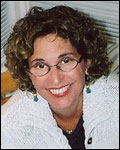REALITY CHECK: A new study out this week estimates that one in every 91 children in the U.S. ages 3 to 17 has an autism spectrum disorder. That report increases the current estimate of autism occuring in 1 in 150 children. The odds of having ASD are four times as large for boys than girls. The report, “Prevalence of Parent-Reported Diagnosis of Autism Spectrum Disorder Among Children in the US,” was published this week in Pediatrics, and conducted by the Department of Health and Human Services National Survey of Children’s Health, using data from the Centers for Disease Control and Prevention (CDC).
My interest and concern about childhood autism began years ago (my kids would say “back with the dinosaurs”). While completing a masters in learning disabilities I worked for the Santa Clara Parks and Recreation Program. I was in charge of the program for kids with special needs. Several of those children were diagnosed as autistic and I’ve never forgotten those kids–or their mothers.
The general belief in those days was that a “Refrigerator Mother” brought on the condition. I’m still hauanted at the injustice done to those women who were some of the most loving moms I’ve known–so guilt-ridden believing that horrific notion. So let me be very clear: Asperger’s syndrome and Autism are neurological conditions–not pyschological or behavioral issues–and neither of them is caused by “bad parenting.”
We’ve come a long way in helping Autistic children from when I first taught. We’re now using research-based instruction. We’re more data-collection driven and we’re far better at recognizing better spectrum identification. We also recognize that the earlier the identification, the better our success in addressing our children’s needs.
That’s why I included Autism Spectrum Disorder as one of the 101 modern-day parenting issues in The Big Book of Parenting Solutions: 101 Answers to Your Everyday Challenges and Wildest Worries (pages 477-487). If you have a copy you’ll find signs of Autism spectrum disorder, best new research, four factors to know if the child’s behavior is just “quirky or too far out and should be checked, tips to know if your child should be in a special education setting, what to expect by age and stage, as well as the three steps with best and proven solutions (early intervention, rapid response, and new habits to help your child learn to boost their success in life).
I want you to know those signs because hands down, all studies show early intervention is essential. It’s also why I was so pleased that Barbara F. Melta, a parenting columnist of Boston.com Moms Child Caring Parenting News & Advice included the signs of Autism Spectrum Disorder from The Big Book of Parenting Solutions in a recent web post: “Dubai Dad Worried About Autism.“
You can read Barbara’s complete post by clicking on the link above. I’ve included below her answer to a worried dad of a preschooler wondering if his son could be on the Autism spectrum disorder. (Thanks Barbara!) Now let’s get to the next crucial step: finding the cause of Autism.
Dear Worried,
In her new book, “The Big Book of Parenting Solutions, 101 Answers to Your Everyday Challenges and Wildest Worries,” Michele Borba identifies these RED FLAGS for Autism Spectrum Disorder:
“Doesn’t fit in; displays eccentric behaviors, including compulsive rocking, arm jerking and repetitive movement; was late talking and has difficulty with speech; is preoccupied with internal monologue, focused on only one thing at a time and unwilling to be distracted or to engage with others; is socially inept; visibly stands out from the other kids; is excluded or ostracized because of major characteristics that are unlike other kids.”
Some of this does seem to apply to your son, and it’s true that, generally speaking, preschool teachers are trustworthy, reliable sources when it comes to identifying problems simply because they see enough children to have a good sense of what is and isn’t “typical” behavior.
Would I take their concerns seriously? Yes. Does that mean — even with your description — that your son is on the autistic spectrum? No. Should I seek professional help to be sure? Absolutely. And please note: the key here is not only to seek professional help but also to seek help from a professional who has experience and training in autism spectrum disorders.
 Barbara F Meltz is a a freelance writer, parenting consultant, and author of “Put Yourself in Their Shoes; Understanding How Your Children See the World.” She won several awards for her weekly “Child Caring” column in the Globe, including the 2008 American Psychological Association Print Excellence award. Barbara is available as a speaker for parent groups. (Thanks Barbara!)
Barbara F Meltz is a a freelance writer, parenting consultant, and author of “Put Yourself in Their Shoes; Understanding How Your Children See the World.” She won several awards for her weekly “Child Caring” column in the Globe, including the 2008 American Psychological Association Print Excellence award. Barbara is available as a speaker for parent groups. (Thanks Barbara!)

